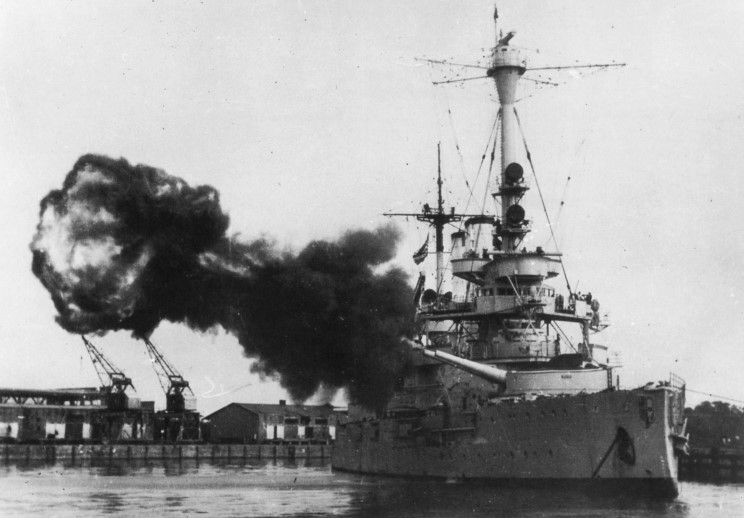|
On August 25, 1939 the German battleship Schleswig-Holstein arrived at Danzig, Poland on a "good will" mission to celebrate the anniversary of the Battle of Tannenburg in 1914. The battleship moored in one of the small estuaries at the mouth of the Vistula River, not far from the Westerplatte peninsula and a Polish garrison. As tensions rose in Europe the Germans onboard knew that the zero hour was fast approaching. Few dates in history can be pointed at as a turning point in the world, even fewer as a day that changed the world forever, September 1, 1939 is one of those dates. In the early morning hours at a radio station on the German Polish border several Polish saboteurs attacked and took over the station. They broadcast several anti German slogans and suddenly it was done. Hitler could stand no more, there had been no less than twenty-one attacks into German territory and this was the last straw. Evidence of the attack was easy to find as Reichsführer-SS Heinrich Himmler had worked out all the details before hand. Under the guidance of Obergruppenführer Reinhard Heydrich, head of the SD and Gruppenführer Heinrich Müller, head of the Gestapo, the "Polish" attackers were provided by Dachau concentration camp, murdered by the Gestapo and dressed in Polish uniforms, their bodies left around the radio station to be easily found. In fact all 21 attacks had been carried out by the SS and Gestapo under Hitler's orders. Hitler made a speech later in the day outlining the outrageous attacks against Germany, but by then World WarII had begun. At 04:45 the order was given to the gunners on the Schleswig-Holstein and at 04:47 the first shot of the war in Europe were fired. The old battleship, built in 1907, was one of the few warships Germany was allowed to keep after the Great War and now she started the next war. Firing 11" shells at the Polish garrison at Westerplatte and unloading hundreds of German soldiers who were hiding in her lower decks. The attack which was supposed to be quick and easy was neither, a few more than 200 Poles held off the Germans for a week surrendering on Sept. 7th. By that date Britain and France had declared war on Germany, there was no turning back from the conflict. The devastation that followed everyone knows, years of war and destruction and most of all over fifty-four million people killed, millions more murdered in the concentration camps. Cities and nations in rubble, millions homeless. The cost of Hitler's war, incalculable. And it was all started by an old battleship on a good will mission. |
© 2007 Michael W. Pocock MaritimeQuest.com |
 |
Sept. 1, 1939: The Schleswig-Holstein shelling the Westerplatte. |
2006 Daily Event |
||